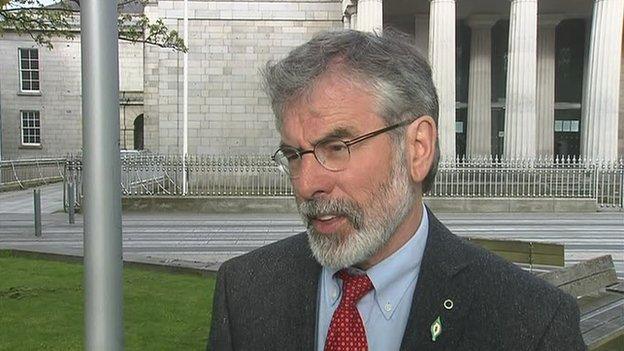The Troubles: Former IRA man Ivor Bell cleared of Jean McConville charges
- Published
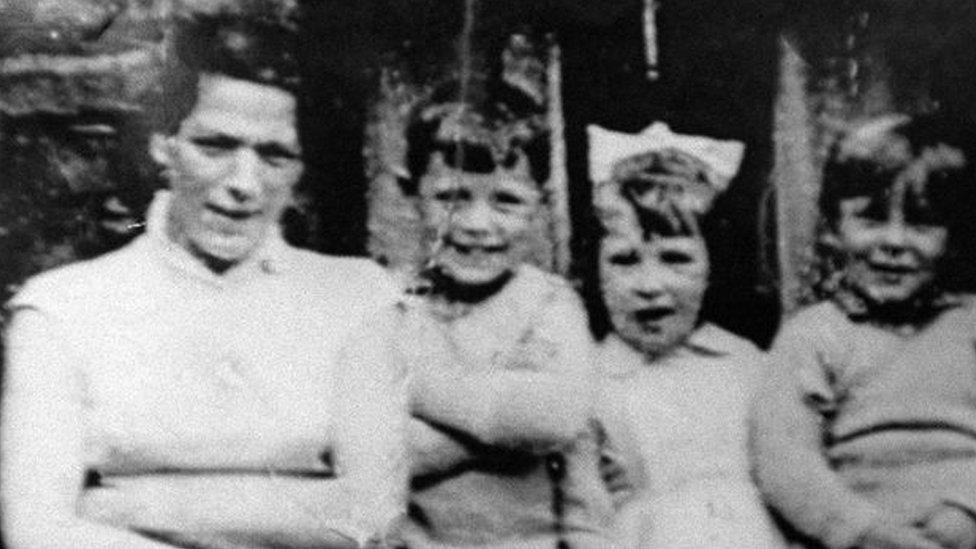
Ten children were orphaned when the IRA murdered their mother Jean McConville in 1972
The first prosecution linked to the murder of mother-of-10 Jean McConville over 40 years ago has found a former senior IRA leader not guilty.
The 1972 killing was one of the most notorious of the Troubles.
On Thursday, Ivor Bell, from Ramoan Gardens in west Belfast, was cleared of soliciting the widow's murder.
The court also heard allegations that former Sinn Féin leader Gerry Adams had recommended her murder and disappearance.
Tapes 'unreliable'
The case against the 82-year-old Mr Bell was based on alleged admissions made to a Boston College oral history project, which were played in public for the first time during the legal action.
Reporting restrictions were placed on the court case, but they were lifted on Thursday.
During the hearing, the jury was played taped recordings of an interview with a man - alleged to be Bell - who said Gerry Adams was the IRA's "officer commanding" in Belfast and had been involved in the decision to kill and secretly bury Mrs McConville.
The judge later ruled the tapes were unreliable and could not be used as evidence against Mr Bell.
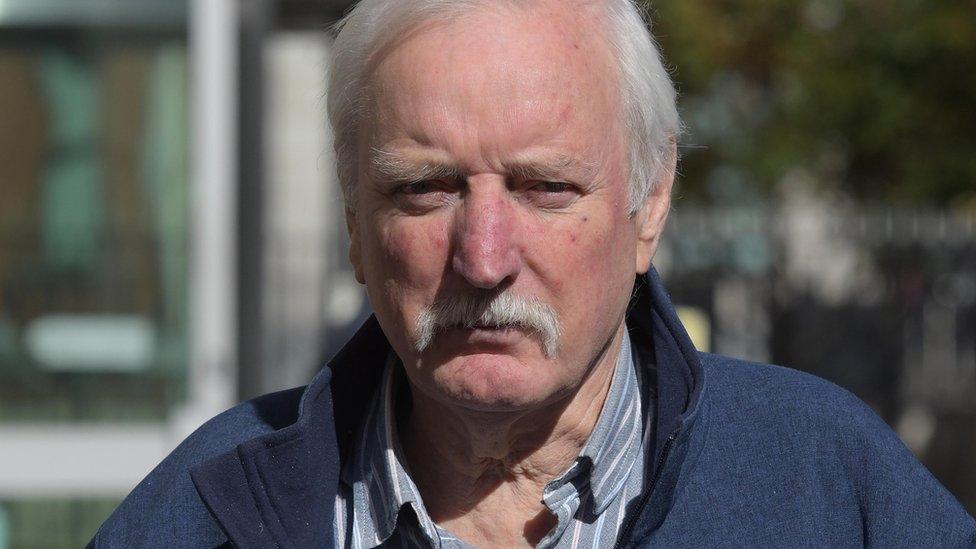
Ivor Bell was in his late 70s when he was first arrested over the McConville case
Addressing the jury, Mr Justice O'Hara said: "There is now no evidence which the prosecution can put before you in order to support the case.
"My role now is to direct you to return a verdict of not guilty, because you simply cannot find him to have done the acts alleged."
'Some truth'
Five of Mrs McConville's children were in court and in a statement issued afterwards, Mrs McConville's son, Michael, said the family was "bitterly disappointed" the Boston tapes could not be used as evidence and demanded a full public inquiry.
He said: "Throughout this, we have got many doors closed on us and we have walked many a road.
"This is the closest that we are going to get to justice."
Jean McConville's children say they are "bitterly disappointed" by the verdict
Susan Townsley, who was aged six when her mother was abducted, choked back tears as she said: "This is the only thing we are going to get at the end of the day.
"As a family we are just going to have to stick together. It has been very hard on all of us."
Mr Bell's solicitor, Peter Corrigan, said his client had been vindicated and that the Boston tapes were "inherently unreliable".
'Complex legal issues'
The Public Prosecution Service defended the decision to take the case.
Deputy Director Michael Agnew said: "This case presented the PPS with a number of novel and complex legal and evidential issues. Whilst we respect the ruling of the judge, we remain satisfied the proceedings were properly brought."
Detective Chief Superintendent Bobby Singleton of PSNI's Legacy Investigation Branch said: "First and foremost our thoughts are with Jean's family on what will have been a day of mixed emotions.
"We will take some time to consider judgement and its implications on similar cases. It was always our firm belief that we had assembled a strong case and that it was in the public interest for the details to be heard."
Secret burial
Mr Adams has always denied being in the IRA and, in his evidence, he said he had no part to play in Mrs McConville's abduction, murder or secret burial.
Appearing in court on Monday, the former west Belfast MP told the jury: "I categorically deny any involvement in the abduction, killing and burial of Jean McConville, or indeed any others."
Mr Adams, who spent over an hour giving evidence, said he believed Mrs McConville should "not have been shot", but should have been shown "compassion".
Mrs McConville, who was wrongly accused of being an Army informer, was dragged from her west Belfast home in front of her children in December 1972.
She was shot and secretly buried by the IRA, becoming one of the Disappeared victims of the Troubles.
Her body was recovered from Shelling Hill Beach in County Louth in 2003.
Disappearance 'recommended'
Ivor Bell's defence team argued it could not be proven that he was the man on the tapes, known as 'Interviewee Z' and that he had been living in County Louth at the time of the murder.
In a ruling on Wednesday, the judge said there was "overwhelming" evidence it was Mr Bell speaking on the recording.
Gerry Adams denies IRA claims in court
The so-called Boston tapes collated accounts from former IRA and UVF paramilitaries about their activities during the Troubles on the understanding these would not be made public until after their deaths.
In 2014, the PSNI won a trans-Atlantic court battle and seized some of the tapes.
Ivor Bell was subsequently charged with two counts of soliciting murder. He was deemed unfit to stand trial in 2018 and a legal process known as a 'trial of the facts' was launched to establish the truth of the allegations.
He was excused from attending the court hearings on health grounds.
On the tapes, Z was asked if there was "a possibility" that allegations Mr Adams had given the order for Mrs McConville's killing and disappearance were wrong.
'Policy of disappearing informants'
Interviewee Z replied: "The only thing I have to say is this - Gerry would have just passed the information back to GHQ [IRA's general headquarters] that one, she was a tout, two, she was taking money, three, she had to be executed. Right?
"Whether he knew she had 10 kids or not, I don't know."
Interviewee Z was also asked about a "policy" of disappearing informants.
He claimed it would have ultimately been a decision for the IRA's general headquarters, but that the "Belfast brigade" would have "advocated" it.
Interviewee Z claimed Mr Adams was the IRA's commanding officer (OC) in Belfast at the time.
'We should shoot touts'
He said: "He was the OC of Belfast. I was operations officer. Pat [McClure] was the IO [intelligence officer]. Pat handled it and directly tied in with Gerry.
"The first I knew about that woman was [when] I was told she was being shot as a tout and the reason for it was she was an informer.
"They told me about radios, signals and pulling the curtains up and down.
"I said: 'I don't know anything about anything, other than we did not have jails so we should shoot touts.'
"The people who came to me was Pat and Gerry."
The interviewer also asked about Mr Adams' attitude towards "burying" Mrs McConville.
Interviewee Z said: "Just that she was a tout and she should be shot.
"I wouldn't say he would have liked it very much."

Ivor Bell was a leading figure in the IRA at the time Jean McConville was murdered
Z further described his own attitude towards informants.
"At the end of the day, she's an informer," he said. "Worse than that, she's an informer for money.
"Whatever is decided, I will back that up. I said: 'I don't have a problem with shooting touts.'
"But they said: 'We are going to bury her.'
"I said I didn't agree with that... If that's done, it's done without my agreement. It defeats the entire purpose."
'Second thoughts'
He later added: "I said: 'If she's a tout, the fact that she's a woman shouldn't save her.'
"I wasn't told she had 10 kids and no husband.
"I can't say for sure that I would have said: 'No, don't shoot her.'
"But I may have had second thoughts."
St Peter's priest
Meanwhile, it was also alleged Mr Adams had asked a priest to get Jean McConville out of Belfast.
According to Interviewee Z: "Gerry said that they asked a priest to get her out of town and the priest for St Peter's refused."
When asked about his motivation for taking part in the oral history project, Z provided two reasons - historical accuracy and annoyance at discovering he was being blamed for the controversial killing.
The court heard claims high-profile republican Bobby Storey, referred to as a "clown" called at Z's house to make enquiries because Sinn Féin were coming under political pressure over the Disappeared.
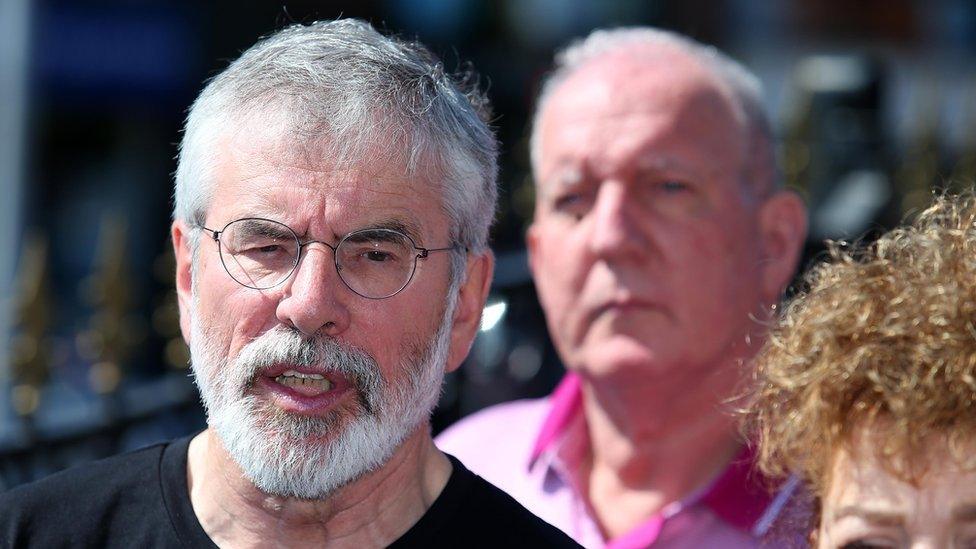
Republican Bobby Storey, pictured here with Gerry Adams, was mentioned by Witness Z on the tapes
Z said: "What annoyed me, he sent an idiot to my house to ask about the woman in the flats.
"I told him... my knowledge of that would be second-hand, why don't you ask Gerry?
"The annoying thing is, he actually believed Gerry."
Most of the Boston College interviews with republicans were carried out by former IRA prisoner Anthony McIntyre, an outspoken critic of Sinn Féin.
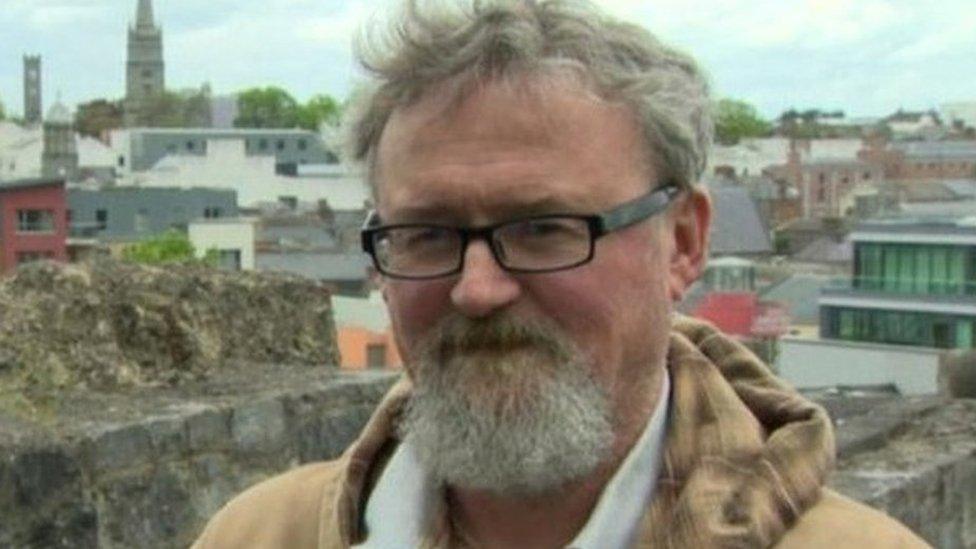
Former IRA man Anthony McIntyre was a lead researcher on the oral history project
The judge ruled Dr McIntyre had asked leading questions, which tainted the evidential value of the tapes.
Mr Justice O'Hara also ruled the false promise that testimony would remain confidential until the contributor's death could have liberated Mr Bell to speak the truth, but could also have given him the freedom to lie, distort, blame or mislead.
There was clear bias that both Mr McIntyre and Mr Bell had an agenda and were "out to get" Mr Adams and others, the judge said.
Earlier in the case, Professor Kevin O'Neill, a director of Irish Studies at Boston College, said the project was now held up as a model of how not to conduct oral history.
But Ed Moloney, the journalist behind the Boston College project, said he welcomed Mr Bell's acquittal and called on the authorities to drop all other cases related to the tapes.
He added those who criticised the project overlooked the fact that because of it the McConville family knows more about her disappearance than before.
He said: "If they had been reliant on the PSNI they would be in for a long wait."
- Published17 October 2019
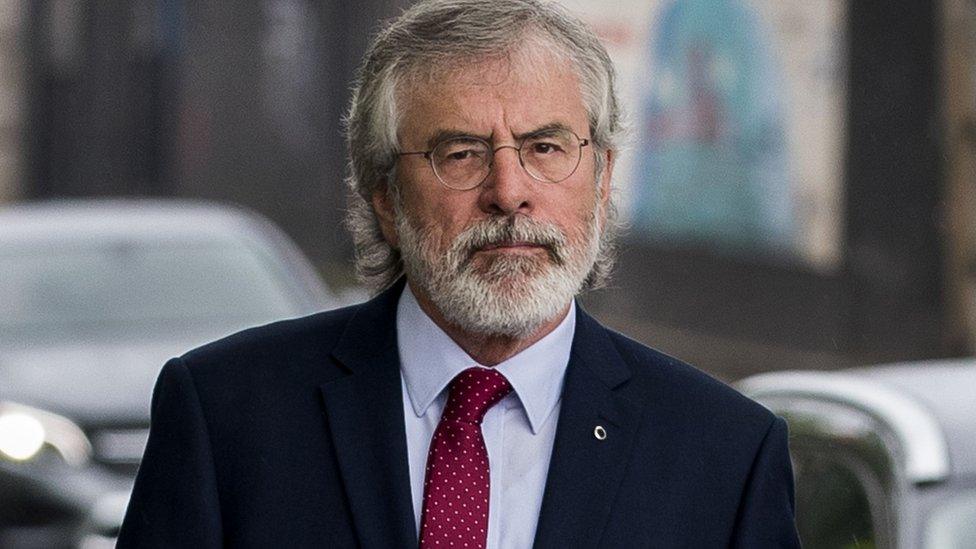
- Published17 October 2019
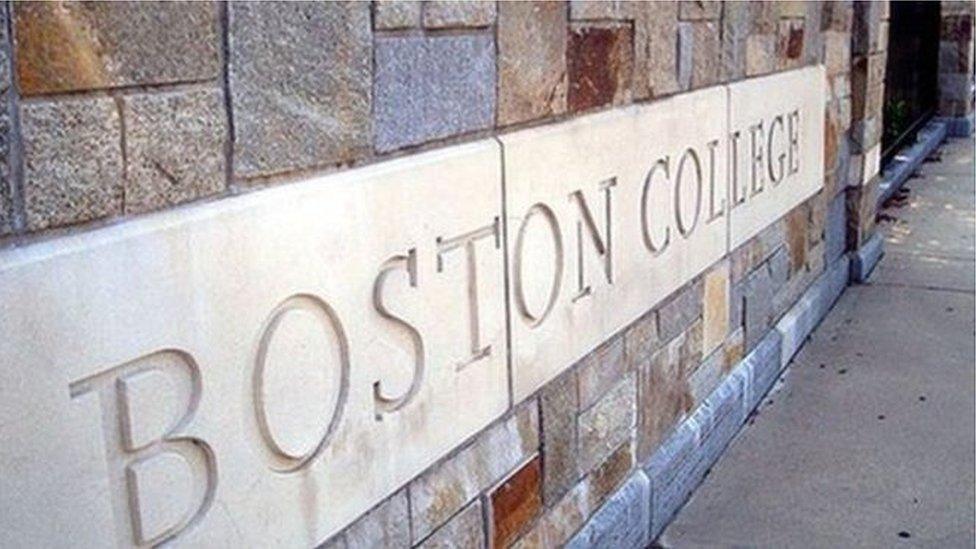
- Published14 October 2019
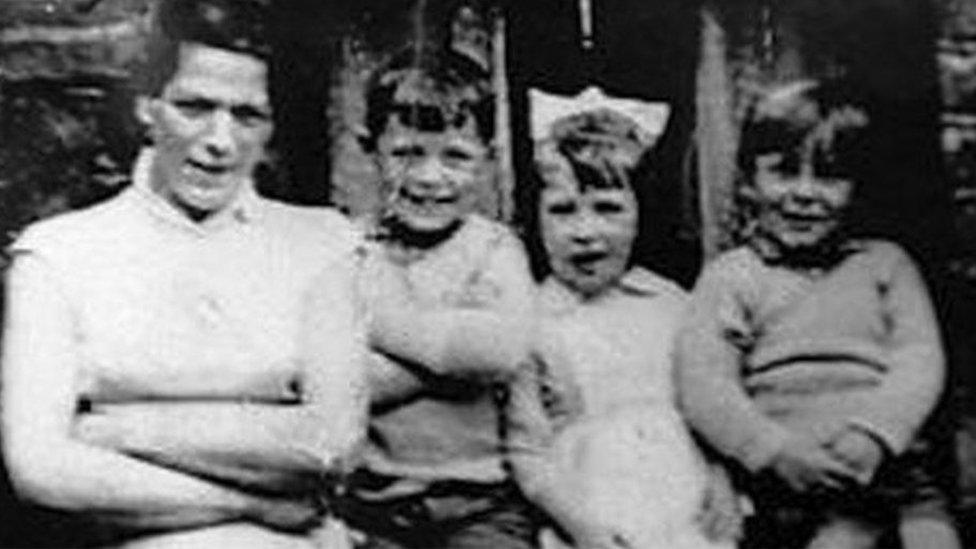
- Published20 November 2017
